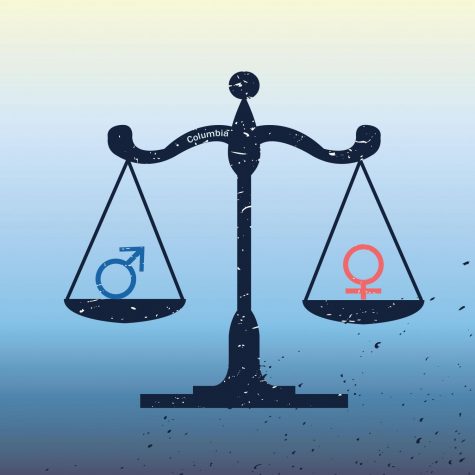College prevails in Title IX court decision
September 16, 2019

It did not take rocket science to predict Columbia would prevail in dismissal of a Title IX case that alleged “anti-male” behavior by the college, said Brooklyn College history professor KC Johnson, who has studied sexual harassment cases for more than a decade.
An Aug. 13 ruling by the Seventh Circuit Court of Appeals affirmed a lower court decision dismissing a lawsuit by an anonymous former male Columbia student under the pseudonym John Doe. The student was suspended from the college in 2016 after allegedly sexually assaulting a female student in December 2015.
Doe’s lawsuit alleged Columbia fosters an “anti-male” environment, ultimately causing the Title IX investigation to be biased, the suit said, as reported by The Chronicle July 23.
The win does not give the college a “clean bill of health or [say] the college is biased in other cases,” Johnson said, adding the ruling only concludes there was no evidence of gender bias found in this particular case.
The college did not respond to a request for comment as of press time.
The case was unwinnable for Doe from the start, Johnson said, because of a lack of evidence regarding specific gender discrimination against him.
“Doe asserts that the ‘Dear Colleague’ letter, pressure from the Office of Civil Rights investigations, and … on-campus programming combined to cause Columbia to implement anti-male policies to increase convictions of male students,” read the appeals decision, written by Senior U.S. Circuit Judge William Joseph Bauer. The 2011 “Dear Colleague” letter was a memorandum written under the Obama Administration, which some believe encouraged using the lowest possible standard of proof in sexual assault cases.
“Doe alleges [this] was done to avoid additional investigations by the Office of Civil Rights, to avoid losing federal funds, and to avoid negative publicity,” Bauer wrote. “A plaintiff cannot rely on these generalized allegations alone, however, but must combine them with facts particular to his case to survive a motion to dismiss.”
In a similar case at Purdue University, the judge found it “perplexing” the male student was found guilty in the investigation, and consequently suspended, when the accuser was not interviewed by the Title IX investigator. The lawsuit was decided in the male student’s favor.
“Some courts have said that … if the process is biased against the accused student, that might be enough to infer some Title IX problems,” Johnson said. “But more cases have done what the Seventh Circuit opinion here did [in the Columbia case]. … It was a limited view of what a college might be liable for.”
Cases filed by students who allege colleges and universities are unfair toward males when investigating sexual assault claims are cropping up across the country, with at least three within the past few months just in Illinois.
Loyola University also faced a similar suit in a case decided Aug. 13 in the U.S. District Court for the Northern District of Illinois. Some of the student’s claims against Loyola were dismissed, except for the promissory estoppel claim, which alleged the school did not deliver on its due process promise.
It is important for universities to maintain fairness for males who are accused of sexual assault, said Hannah Stotland, an admissions consultant who specializes in assisting college applicants who have records of mental illness, substance abuse, suspension, expulsion, criminal charges or Title IX problems.
“Having a lot of certainty about who we are branding, who we’re identifying as unsafe members of the community … I want to have a lot of confidence about who’s who. That really matters,” Stotland said. “I’m also concerned about the ultimate impact on the larger goal of eradicating sexual assault and bringing guilty parties to justice. That goal is not served by haphazard enforcement of accusations that are not well-proven.”
The issue with colleges running Title IX investigations is they take time and money—two resources most colleges cannot afford, Stotland said. Multibillion-dollar Ivy League institutions, such as Stanford University, have the resources to provide both students who have been accused and who are alleged victims with lawyers for the sake of fairness.
“I’m skeptical this can be done well within realistic budgets for a lot of schools that don’t have multibillion-dollar endowments,” Stotland said.
A common complaint in Title IX cases is a lack of access to college documents outlining how investigations are handled by employees, and a lack of transparency on how the process is conducted, Stotland said.
Had the Columbia case survived the motion to dismiss, the documents Doe allegedly requested from Columbia during the investigation would have been made public, Johnson said. “This was not a pristine process by Columbia,” he said.
Moving forward, Johnson said students looking to file Title IX claims against private educational institutions in Illinois will need more specific evidence of gender discrimination or improper procedures.
For those worried about believing women in the midst of the #MeToo movement, Stotland said society, friends and families should believe and support women, but judges, journalists, jurors and investigators need to take a more skeptical, unbiased approach.
“As a supporter of #MeToo, as someone who is interested in people who attack others being brought to justice, … I don’t think it is good for the cause of justice to have people tarred with the identity of people who committed sexual assault when we’re not very certain about what happened,” Stotland said. “That does not, in the long term, benefit the cause of justice for survivors of sexual violence.”







